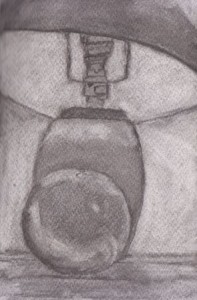One of Richard Dawkins’ Twitter homilies recently irritated me sufficiently to engage in a little tweeted debate with him and some of his followers. 140 characters don’t exactly lend themselves to nuanced discussion, however, so here are my more measured thoughts.
“As I repeatedly said [Dawkins wrote], some atheists do bad things. But it is not their atheism that drives them to it. Religion can do that.”
It’s obvious that horrific things are indeed done in the name of various religions. I think of the Taliban, the Spanish Inquisition, the Magdalene Laundries. But horrific things have also been done in the name of atheistical regimes who believed (as Dawkins does) that religion is harmful. The following is from Wikipedia, so feel free to question its accuracy, but it concurs with what I have understood to be the case from other reading.
State atheism in the Soviet Union was known as gosateizm,[2] and was based on the ideology of Marxism–Leninism. As the founder of the Soviet state, V. I. Lenin, put it:
Religion is the opium of the people: this saying of Marx is the cornerstone of the entire ideology of Marxism about religion. All modern religions and churches, all and of every kind of religious organizations are always considered by Marxism as the organs of bourgeois reaction, used for the protection of the exploitation and the stupefaction of the working class.[6]
Marxist–Leninist atheism has consistently advocated the control, suppression, and elimination of religion. Within about a year of the revolution, the state expropriated all church property, including the churches themselves, and in the period from 1922 to 1926, 28 Russian Orthodox bishops and more than 1,200 priests were killed. Many more were persecuted.[7]
And this is about the cultural revolution in China:
Marxist-Leninist ideology was opposed to religion, and people were told to become atheists from the early days of Communist rule. During the Destruction of Four Olds campaign, religious affairs of all types were discouraged by Red Guards, and practitioners persecuted. Temples, churches, mosques, monasteries, and cemeteries were closed down and sometimes converted to other uses, looted, and destroyed.[30] Marxist propaganda depicted Buddhism as superstition, and religion was looked upon as a means of hostile foreign infiltration, as well as an instrument of the ‘ruling class’.[31] Chinese Marxists declared ‘the death of God’, and considered religion a defilement of the Chinese communist vision. Clergy were arrested and sent to camps; many Tibetan Buddhists were forced to participate in the destruction of their monasteries at gunpoint.[31]
Of course there are all kinds of complex socio-political reasons why the Soviet and Chinese authorities felt the need to persecute religions (the Chinese still do, of course, notably in the case of the Falun Gong) but the same kind of thing can be said about the activities of the Inquisition or the Taliban. There’s always a political agenda and a political context for everything but if the latter can (somewhat simplistically) be described as bad things driven by religion, then it seems to me that the former can be also be described (also simplistically) not just as ‘atheists doing bad things’ but as bad things driven by atheism.
Richard Dawkins would be perfectly entitled to say that this isn’t his kind of atheism at all, and I know it isn’t. (Many Marxists, I know, would also say it wasn’t their kind of Marxism!) But in that case aren’t religious people equally entitled to say the the Inquisition isn’t their kind of religion? It’s pretty meaningless to generalise either about ‘religion’ or about ‘atheism’, since both embrace a vast range of possible worldviews, but if we are going to lump all these worldviews together into these two camps, then it really isn’t fair (though it is, unfortunately, extremely human) for one camp or the other to point to its own good guys and compare them to the other camp’s bad guys.
What I object to in Dawkins’ position isn’t atheism – I suppose I’m an atheist myself, if we have to use these simplistic categories – nor his robust critique of the unpleasant aspects of religion: I’m confident that no one who’s read The Holy Machine would suggest that I’m in any way soft on those. What I’m objecting to is the implication that ‘atheism’ (which after all just means not believing in God) is in some magical way incapable of being a pretext for bad things. This seems to me curiously reminiscent of certain of the less attractive aspects of organised religion. Join us, and you’ll be saved!
140 characters wasn’t enough, and nor is this either. The Holy Machine explores this stuff further, and I tried to critique in it a kind of intolerant literal-mindedness which can be found both among fundementalist religions and among some atheists.
None of us know the truth about the universe, not even Richard Dawkins, and we should be as generous as we can towards one another’s faltering attempts to glimpse it.


